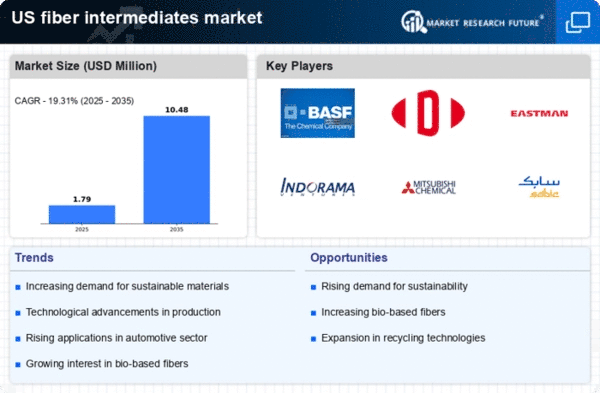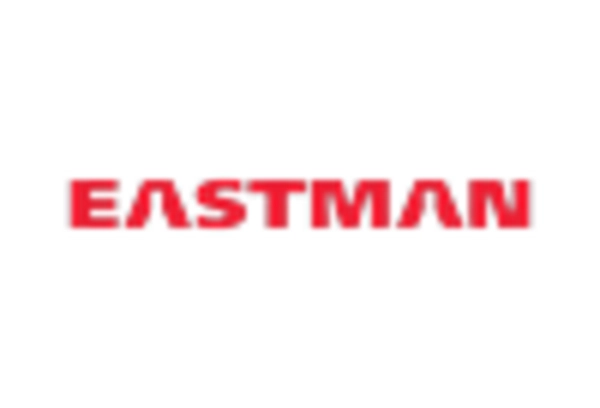Growth in Textile and Apparel Sectors
The fiber intermediates market is significantly influenced by the expansion of the textile and apparel sectors in the US. With the increasing population and changing fashion trends, the demand for textiles is on the rise. In 2025, the US textile market is expected to surpass $70 billion, which directly impacts the fiber intermediates market. This growth is further fueled by innovations in fabric technology and the introduction of new materials, which require advanced fiber intermediates. Consequently, manufacturers are compelled to enhance their production capabilities to meet the escalating demand, thereby driving the market forward.
Rising Demand for Eco-Friendly Products
The fiber intermediates market is experiencing a notable increase in demand for eco-friendly products. This trend is driven by consumers' growing awareness of environmental issues and their preference for sustainable materials. As a result, manufacturers are increasingly focusing on producing biodegradable and recyclable fiber intermediates. In 2025, the market for sustainable fibers is projected to reach approximately $15 billion in the US, indicating a robust growth trajectory. This shift towards sustainability is likely to influence the entire supply chain, from raw material sourcing to end-product manufacturing, thereby reshaping the fiber intermediates market.
Regulatory Support for Sustainable Practices
The fiber intermediates market is benefiting from regulatory support aimed at promoting sustainable practices. Government initiatives and policies encouraging the use of renewable resources and environmentally friendly production methods are becoming more prevalent. In 2025, it is anticipated that federal and state regulations will mandate a minimum of 30% recycled content in textile products, thereby driving demand for sustainable fiber intermediates. This regulatory landscape is likely to create a favorable environment for manufacturers who invest in sustainable technologies, ultimately contributing to the growth of the fiber intermediates market.
Technological Innovations in Fiber Production
Technological advancements in fiber production processes are playing a crucial role in shaping the fiber intermediates market. Innovations such as automation, artificial intelligence, and advanced manufacturing techniques are enhancing efficiency and reducing production costs. For instance, the implementation of smart manufacturing technologies is expected to improve yield rates by up to 20% in the coming years. These advancements not only streamline operations but also enable manufacturers to produce high-quality fiber intermediates that meet stringent industry standards. As a result, the market is likely to witness increased competitiveness and growth opportunities.
Increased Investment in Research and Development
Investment in research and development (R&D) is a key driver for the fiber intermediates market. Companies are allocating substantial resources to innovate and develop new fiber technologies that cater to evolving consumer preferences. In 2025, R&D spending in the textile sector is projected to reach $5 billion in the US, reflecting a commitment to enhancing product performance and sustainability. This focus on innovation is expected to lead to the introduction of advanced fiber intermediates that offer improved functionality, durability, and environmental benefits, thereby propelling market growth.
















